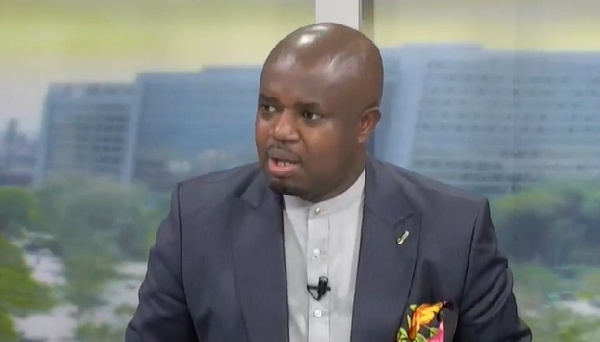The Director of Legal Affairs for the National Democratic Congress (NDC), Godwin Edudzi Tamakloe, is demanding accountability from Mr. Kwabena Adu Boahene, the immediate past Director-General of the National Signals Bureau (NSB), over allegations that he diverted public funds into a private company.
Responding in a strongly worded Facebook post to comments made by Mr. Adu Boahene’s lawyer, Samuel Atta Akyea, Mr. Tamakloe raised several pointed questions aimed at clarifying Mr. Adu Boahene’s alleged involvement in the financial misconduct.
“Did you move the funds directly into your private company account? Was the money public funds? Are you a signatory to this private company’s account? Did you authorise the movement of funds to this private company? Were there withdrawals from this private company’s account? Were these withdrawals contemporaneous with the receipt of the funds from the state agency?” Tamakloe queried.
He stated that any attempt to shift focus away from these fundamental questions would not be tolerated. “Anything else is diversions,” he said, urging the defense to stick to the core of the case.
Mr. Tamakloe asserted that the charges are rooted in facts, specifically that Mr. Adu Boahene, while heading a sensitive national security body in January 2020, entered into a contract with an Israeli company to supply and install security equipment. Around the same period, he allegedly incorporated a private company with a name resembling that of the state agency and channeled public funds into it.
According to Tamakloe, this constitutes theft, arguing that “the appropriation was done dishonestly.”
He also took issue with the defense’s argument that the diverted funds were used for payments to Members of Parliament during the 2024 elections, calling the explanation irrelevant and belated. “Alleged payments to MPs after the fact of the appropriation cannot negate the dishonesty associated with the appropriations,” he stated, describing such claims as an “afterthought.”
In addition, Tamakloe challenged the legal foundation of the defense’s reliance on the Security and Intelligence Act, 2020, stressing that the Act was not in force at the time of the alleged wrongdoing. He noted that the law was assented to in October 2020, while the alleged offences took place in January and March of that year. “If you look at the particulars of the offences, you would notice that the offences happened in January and March 2020. So, how are you relying on this Act for prior conduct?” he asked, emphasizing that lawyers must provide sound legal advice to their clients.
Concluding his remarks, Tamakloe issued a stark warning to the defense team. “At this rate, your lawyers should be advising you on how to do less than 25 years,” he said.
The allegations and ongoing legal proceedings continue to fuel national debate, as attention turns to how the case will unfold in court.


